In conducting the research here at LeafScore.com, we rely, in part, on green certifications to formulate Leaf Scores for products. Why? Because certifying bodies, like the ones listed below, are the primary “cops on the beat,” policing brands and manufacturers to make clean, green, sustainable products. If a brand plays by the rules set by a certifying body, for say VOCs, it’s evidence they are putting in effort to do right by consumers and the planet. Below, we have compiled a list of the most important certifications to look for when buying eco-friendly products.
As we continue to feature more suggested products we’ll continue to update this page with relevant resources to make sure that you’re looking for the best certifications possible – make sure to check back!

Bed Sheets
There are around 100 international standards and eco-labels for textiles, which can make it hard to figure out which ones are helpful when choosing new sheets. So, to help you figure out the right eco-friendly sheets for your needs, we discuss some of the most robust green certifications for bed sheets.
Crib Mattresses
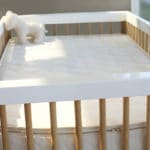
Which certifications should look out for to help you figure out the right eco-friendly non-toxic crib mattress for your baby? The best certifications typically assess the materials used in the end product, or the product as a whole, providing reassurance of quality and environmental and ethical standards right to the point of sale. If you’re on the lookout for certifications that’ll help you sleep better at night knowing your baby’s mattress is non-toxic and sustainably sourced, we’ve got you covered.
Duvets

When looking at duvets online or in store, it’s not always terribly clear what the duvet is made of. Frankly, the lack of information, and the greenwashing, is enough to make you want to crawl into bed and never leave. Fortunately, some third-party organizations are on hand to help you see in an instant if a duvet has the seal of approval, meaning it is legitimately organic and very likely non-toxic and eco-friendly.
Hardwood Flooring

Deforestation is a major problem that affects all of us. It has immediate impacts for communities close to deforested areas and destroys habitat for wildlife. Deforestation also affects air quality, creates pollution, and reduces carbon sequestration. In order to ensure that consumers are aware of hardwood flooring options that are climate friendly, and sustainable, we maintain a list of important certifications to look for when buying hardwood flooring.
Mattresses
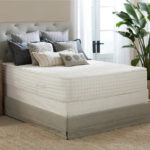
We spend a whole lot of time sleeping, and mattresses tend to be a pricey item that we (hopefully) only plan on buying once every decade or so, which is why most of us like to do our homework beforehand. If you’re on the lookout for certifications that’ll help you sleep better at night knowing your product is non-toxic and sustainably sourced, we’ve got you covered.
Menstrual Products
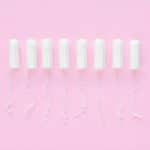
Menstrual management products in the U.S. aren’t subject to particularly stringent regulation, so it’s up to the companies that create them to seek out the relevant certifications for safety and sustainability. Certifications like USDA-certified organic and GOTS are some you’ve likely seen before, but there are others to be aware of as well.
Ovens, Stovetops & Ranges

From the European Energy Label to California’s Prop 65, eco-certifications for ovens, stovetops, and ranges take into consideration things like source materials, energy consumption, and the presence of potential hazardous and chemical substances. These are the certifications you’ll want to be on the lookout for if you’re in the market for a new oven, stove, or range.
Pillows
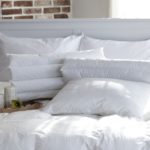
Greenwashing runs amok when it comes to household textiles, making it hard to figure out if that ‘natural’ and ‘organic’ pillow is nothing but toxic fluff with no meaningful green certifications. Fortunately, there are some robust green certifications for pillows that can help you figure out the most eco-friendly product for a good night’s rest. These typically assess the product as a whole, providing reassurance of quality and environmental and ethical standards.
Rugs
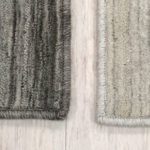
Greenwashing is something that we talk about time and again at Leaf Score. Rug manufacturers are no different than companies making any of the other products that we’ve discussed. As with these other goods, many rug sellers piggyback on consumer enthusiasm for eco-friendly products by advertising goods as ‘natural’ when they’re anything but. Here are some of third-party certifications that you should look for when it comes to eco-friendly rugs.

Seafood
Seafood labeling is confusing enough as it is, but the proliferation of greenwashing and marketing hypberbole makes trying to figure out if you’re getting products from a reputable seafood source even more difficult. Terms like “ocean-friendly,” “responsibly sourced,” or “responsible fishery” hardly – if ever – carry any valuable weight beyond trying to get you to purchase something. Here are some certifications you can watch for and trust.
Shaving Products
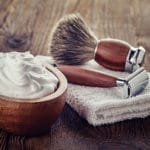
Shaving products aren’t held to quite as stringent regulation in the United States, which makes doing your homework on the potential toxins within them all the more important. From potentially toxic chemicals in some of the shaving creams and foams to standards set on reusable shaving products, here are some labels you’ll want to be on the watch for while shopping for everything you need for a clean shaving experience.

Wine
While you don’t typically see too terribly many reports of greenwashing when it comes to wine companies, there are concerns to be had about the way in which the grapes are handled and processed that are being used, the factory bottling conditions, and more. These are some of the certifications you should look for when considering your wine choices.
Yoga Mats

While you’d think natural non-toxic materials would go hand in hand with the practice of yoga, you’d be surprised how often greenwashing occurs. Many companies make claims or self-declare that their products are “natural” and “green” because those aren’t regulated terms in the US; here are the certifications you should keep an eye out for that back these claims up.